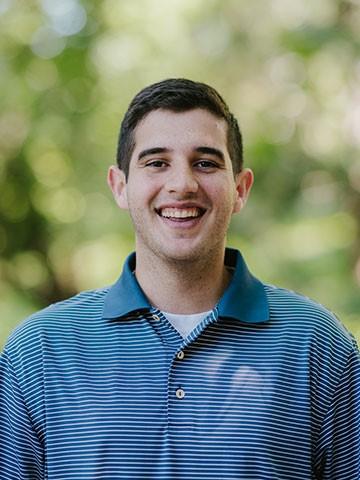
Latinx Task Force Brings in New Leadership, Opportunities with Hispanic Heritage Month

Palo Alto University’s Latinx Task Force (LTF) has newly elected leadership and a new Latinx Merit Scholarship this fall. As PAU honors Hispanic Heritage Month, we spoke with new co-chair Nick Lapido about the Task Force’s work.
Nick Lapido is PAU’s Assistant Director of Outreach in the Office of Admissions. He joins Jackie Grapa, a PAU graduate student as co-chair, and they took the helm from Blanca Pineda, EdD, Research Project Manager for i4Health.
The Latinx Task Force (LTF) was formed in 2017. It is a coalition of students, faculty, staff, and alumni who generate and lead projects serving the Latinx and Hispanic communities within PAU as well as surrounding communities.
Examples of their work are the LTF Mentorship Talks, in which Latinx alumni shared their educational and career journeys with students, and a resumé and college application workshop for undergraduate transfer students.
A significant new project of the LTF is the Latinx Merit Scholarship announced this summer. There are ten, $10,000 scholarships available to Spanish-speaking, Latinx undergraduates in the University’s BS in Psychology and Social Action program.
The Task Force, Lapido said, is passionate about recruiting from the Latinx population. “We’ve experienced the same hurdles to higher education in our own journeys, so we wanted to create something that will make PAU more inclusive and equitable, and open up more opportunities for advancement.”
Lapido was born in Uruguay. He’s an immigrant and a first-generation college graduate. “For most of my time in the U.S., I was undocumented,” he said. “I eventually became a DACA recipient, which allowed me to go to college.”
Nick’s work in Admissions, with the Latinx Task Force, and with the Latinx Merit Scholarship are about making a difference. “From all the challenges I overcame, I wanted to give back. None of us can really accomplish anything alone, without someone reaching out a hand and helping. I experienced that kind of help and I want to be that for other people too.”
“I strongly believe that education opens doors to job opportunities and future growth,” Nick said.
The U.S. Census shows that Hispanic communities “accounted for about half (52%) of all U.S. population growth” from 2010-2019. And yet, the U.S. Department of Health & Human Services reports that 34% of Hispanic adults receive mental health treatment compared to the US average of 45%.
This is not likely just a difference in need or demand. The American Psychological Association (APA) reports there are approximately 5,000 psychologists in the United States who are Hispanic, which is only 5% of all psychologists. Only slightly more – 5.5% - say they can provide mental health services in Spanish, “making them a rare commodity.”
The APA has also done the math: 17,360 psychologists will be needed to serve Hispanic populations within the next decade. California alone will require an estimated 5,160 psychologists.
The LTF worked with an anonymous donor family and PAU’s Development team to create the Latinx Merit Scholarship. Their intentions are to strengthen the pipeline of Spanish-speaking students into professional positions that serve Spanish-speaking communities.
“At the end of the day,” he said, “I want to make a difference. I want to make a difference for our students and for the Latinx community. I don’t believe education needs to be this elitist thing that is only accessible to a small percentage of the population.”
As the pandemic compounds racial disparities in medical care, and increases the need for mental health care, the Latinx Task Force and PAU are supporting the next generation of psychologists, counselors, researchers, and clinicians.
